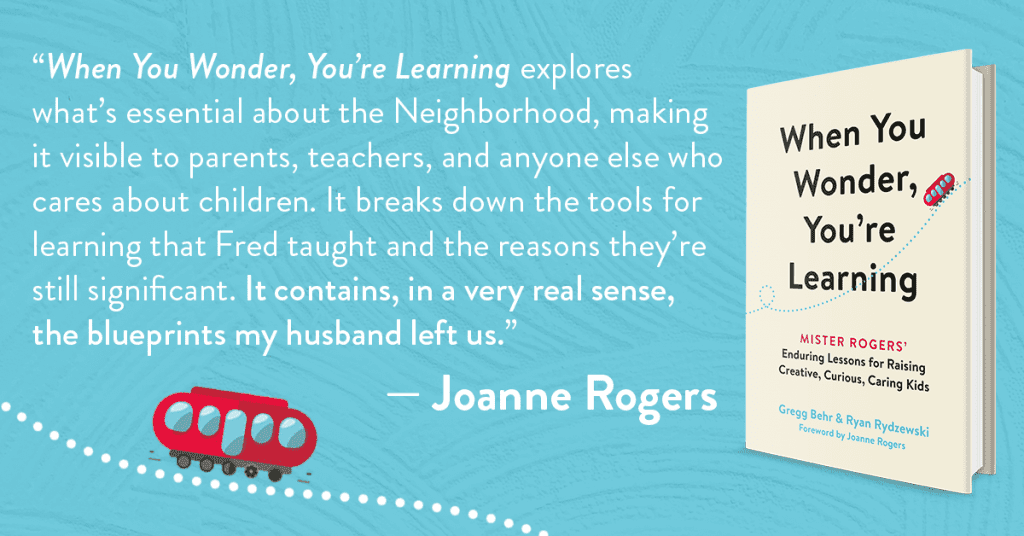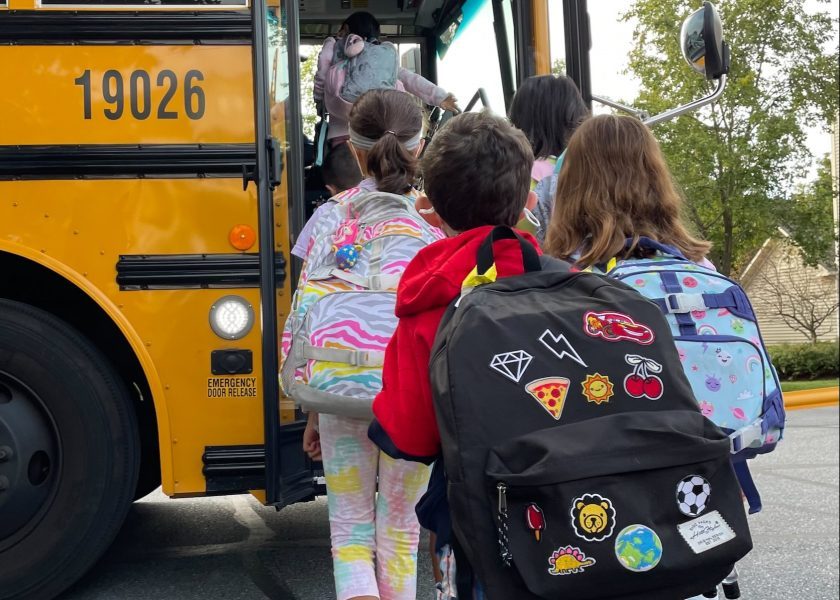Mister Rogers’ Enduring Lesson: How to Raise a Helper
By now, you’ve almost certainly seen Fred Rogers’ advice for comforting kids: “When I was a boy,” he said, “and I would see scary things in the news, my mother would say to me, ‘Look for the helpers. You will always find people who are helping.’”
The quote can help us feel hopeful in trying times. But as Fred showed us in Mister Rogers’ Neighborhood, it doesn’t take a tragedy to bring out the helpers. People also help in small moments and in all-but-invisible ways: A well-timed embrace. A kind word. Even just being there for someone who needs us. (“It’s really tough some days, isn’t it?” we might say to a friend.)
Fred knew that small moments like these often make the biggest difference. Parents know it, too: Surveys suggest that for most of us, our highest hope for our kids is that they’ll grow up to be caring, generous people who help their families and neighbors.
According to a report released a few years ago by the Harvard Graduate School of Education, kids hear something else altogether: nearly 80 percent of young people say their parents are more concerned with achievement than they are about character. When asked what would make their parents prouder — getting good grades or being a helper — kids were three times more likely to pick the former.

Be a Helper to Raise a Helper
As we write in our book, When You Wonder, You’re Learning: Mister Rogers’ Enduring Lessons for Raising Creative, Curious, Caring Kids, we can look to Fred to find out why.
One of the most important things Fred learned from his mentor, Margaret McFarland, was the Quaker philosophy that attitudes are caught, not taught. We can extol the virtues of helping all day long, but without action to back up our words, our words aren’t likely to stick. The best way to raise helpers, it turns out, is to strive to be helpers ourselves.
That might be easier said than done, especially amid the pressures and stress of modern family life. Even Fred liked to have a reminder: Once, while strolling his college campus, he discovered a plaque that said, LIFE IS FOR SERVICE. The inscription struck him as so simple, yet so profound, that it shaped the rest of his years. He wrote it on a slip of paper, which he put in his wallet and carried for decades. He even hung a photo of the plaque on his office wall.
Though he’s best known for his make-believe Neighborhood, stories about Fred’s real-world service could fill a book. There’s the little girl whom he helped through a coma. There’s the journalist whose relationship with Fred changed the course of his life. The list goes on and on.
We’ve heard countless similar stories while sharing When You Wonder, You’re Learning with parents and teachers around the world. And we’ve heard them in our hometown of Pittsburgh, where Fred was our real-life neighbor. (There’s even a holiday here that celebrates Fred’s kindness — a holiday that ought to be national!)
Fred was the real deal, as kind in real life as he was on television. The Fred we saw on screen was not an act, but a practice. He led by example, helping his neighbors do the same. He showed the world that “each and every one of us can be as caring, kind, and influential in children’s lives as he was,” wrote his equally kind wife, Joanne, in the foreword to our book. Every last one of us can be a helper.

How to Help in YOUR Neighborhood
What might it look like to follow in Fred’s footsteps in our own lives and our own homes? And how might we raise kind children, remembering — as Fred did — that attitudes are caught, not taught?
With the holidays fast approaching, it’s a great time to wonder how we might serve others. Maybe there’s a food pantry where you and your family might help. Maybe an elderly neighbor needs help clearing some leaves. Or maybe, in this season of giving, you decide to give gifts a bit differently. Each year on their birthdays, for example, Gregg’s daughters get lots of presents, from which they choose just a small number to keep. They take the rest to Beverly’s Birthdays, a nonprofit organization that arranges birthday parties for kids experiencing homelessness.
Whatever you do, it doesn’t have to be big. In fact, it’s better if it’s not big — if your helping, like Fred’s, happens in small moments and in all-but-invisible ways.
“It’s tempting to think ‘a little’ isn’t significant and that only ‘a lot’ matters,” he once said. “But most things that are important in life start very small and change very slowly, and they don’t come with fanfare and bright lights.”
In a time when the brightest lights seem to shine on what matters least, it’s hard to imagine a more important lesson for young helpers. (And for us grown ones, too.)




